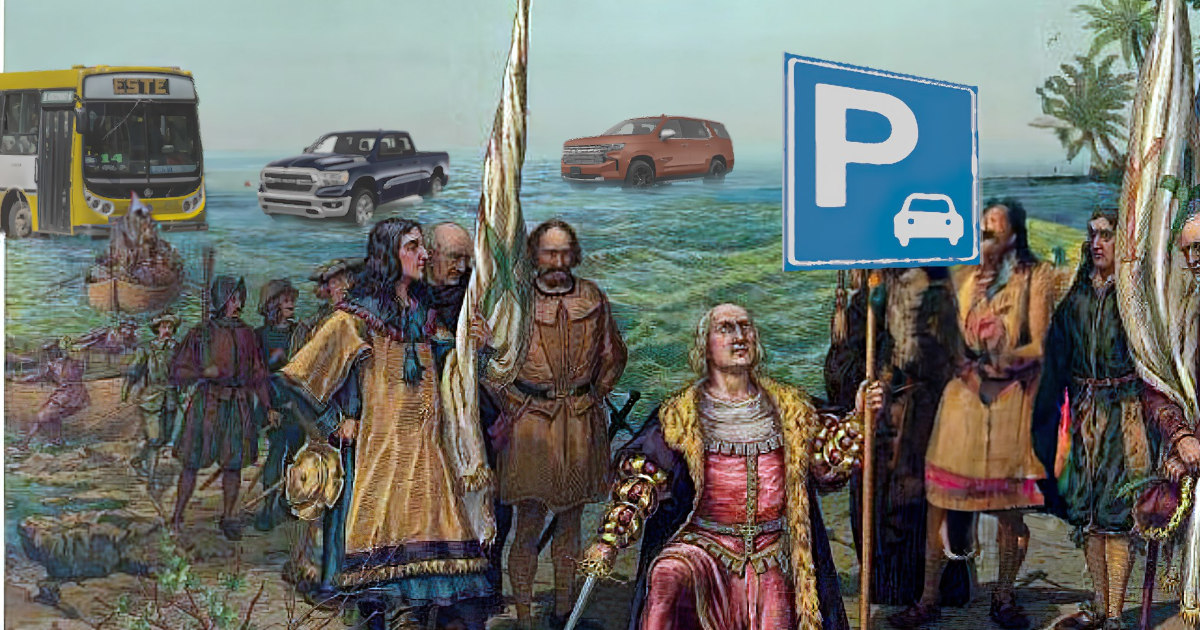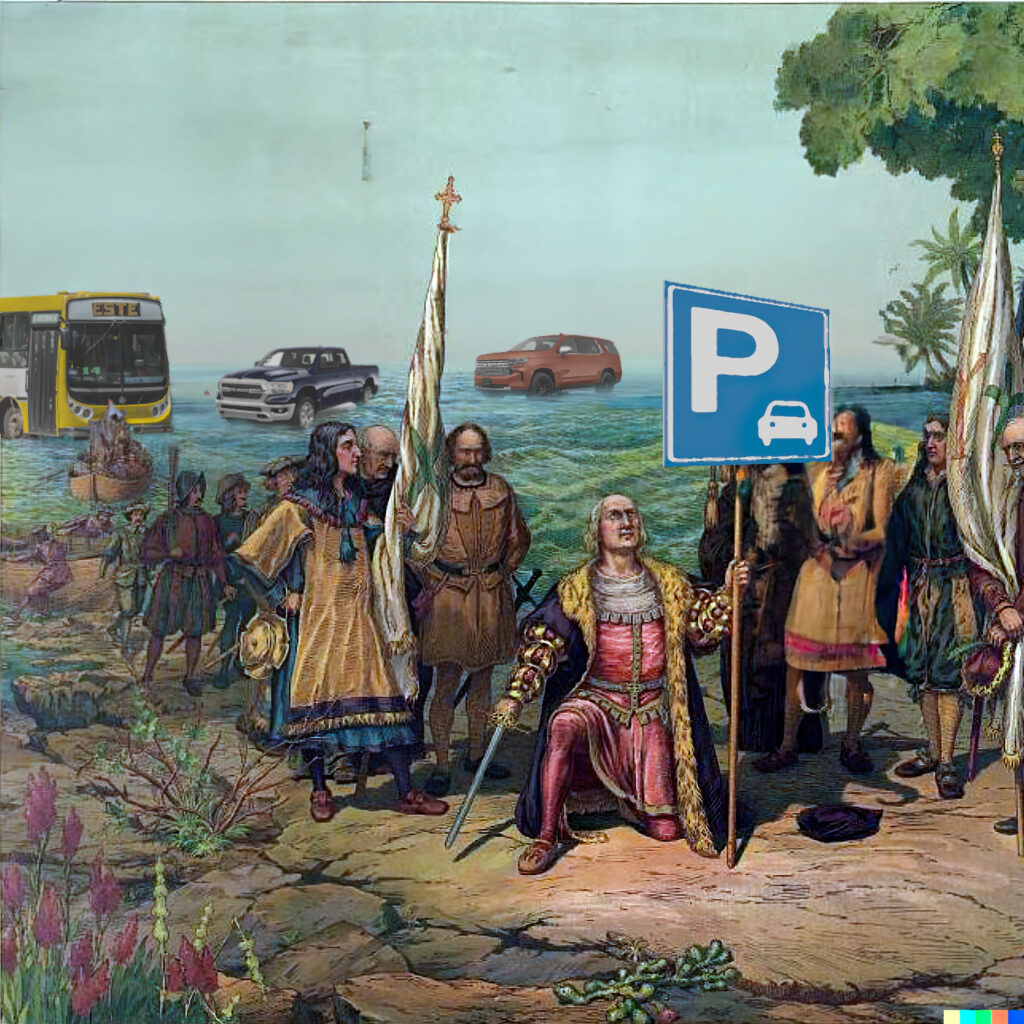
Repost: Written by me, originally published by Trufi Association
“Transport colonialism” refers to the historical and ongoing practice of implementing transport solutions designed and imposed by “experts” who are out of touch with or indifferent to community mobility needs.
The “colonial” designation does not necessarily mean that the transport solution is prescribed by foreign influences. A native-born transport planner can equally be “colonial” if they claim to know what is right for their city without actually consulting with the intended beneficiaries of the transport solution they wish to implement.
Learn how open data and community engagement can offer more inclusive and effective alternatives to promote social change.

Composite photo created by Trufi Association, based on “Columbus taking possession of the new country” published by L. Prang & Co.
By overlooking the valuable insights and needs of these communities, top-down planning methods perpetuate social inequality and exclude marginalized voices; they displace people, livelihoods, businesses, and the ingenuity of the locally-evolved transport ecosystem.
Presenters
Benjamin de la Peña is the CEO of the Shared-Use Mobility Center, the chair of the Global Network for Popular Transportation, and a Senior Mobility Fellow at the Canadian Urban Institute. Benjie is a recognized thought leader on popular (a.k.a. “informal”) transportation, on decolonizing mobility and has written extensively on how to prioritize community empowerment and local knowledge in transport planning.
Miloš N. Mladenović, Assoc. Prof. at Aalto University, is a transport systems expert advocating for inclusive, community-led planning. His research on emerging mobility tech and decision-support methods informs his insights on how open data and community engagement can disrupt colonial approaches to transport planning.
For more event related to Trufi and Transportation Justice view the Trufi Public Events Calendar.



